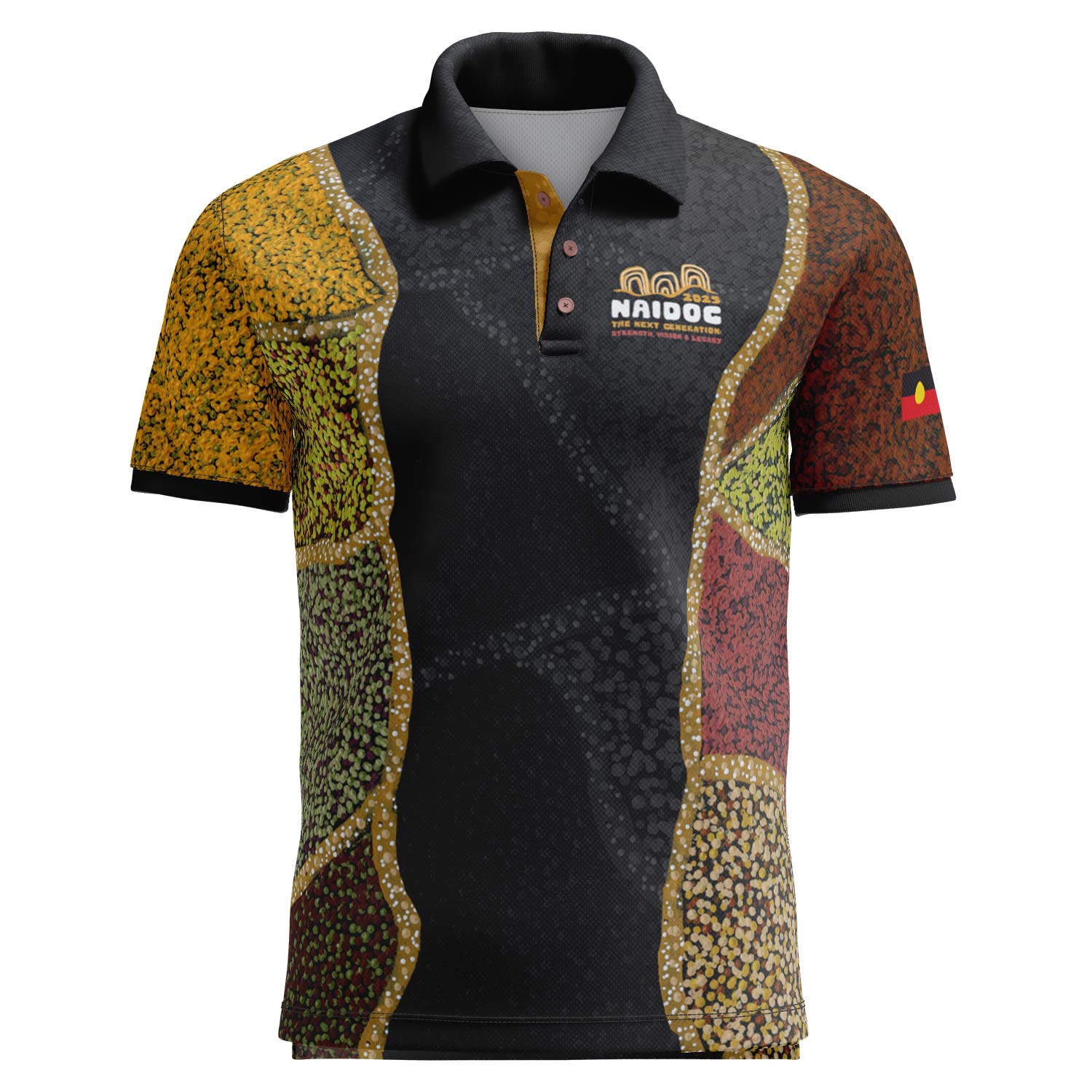
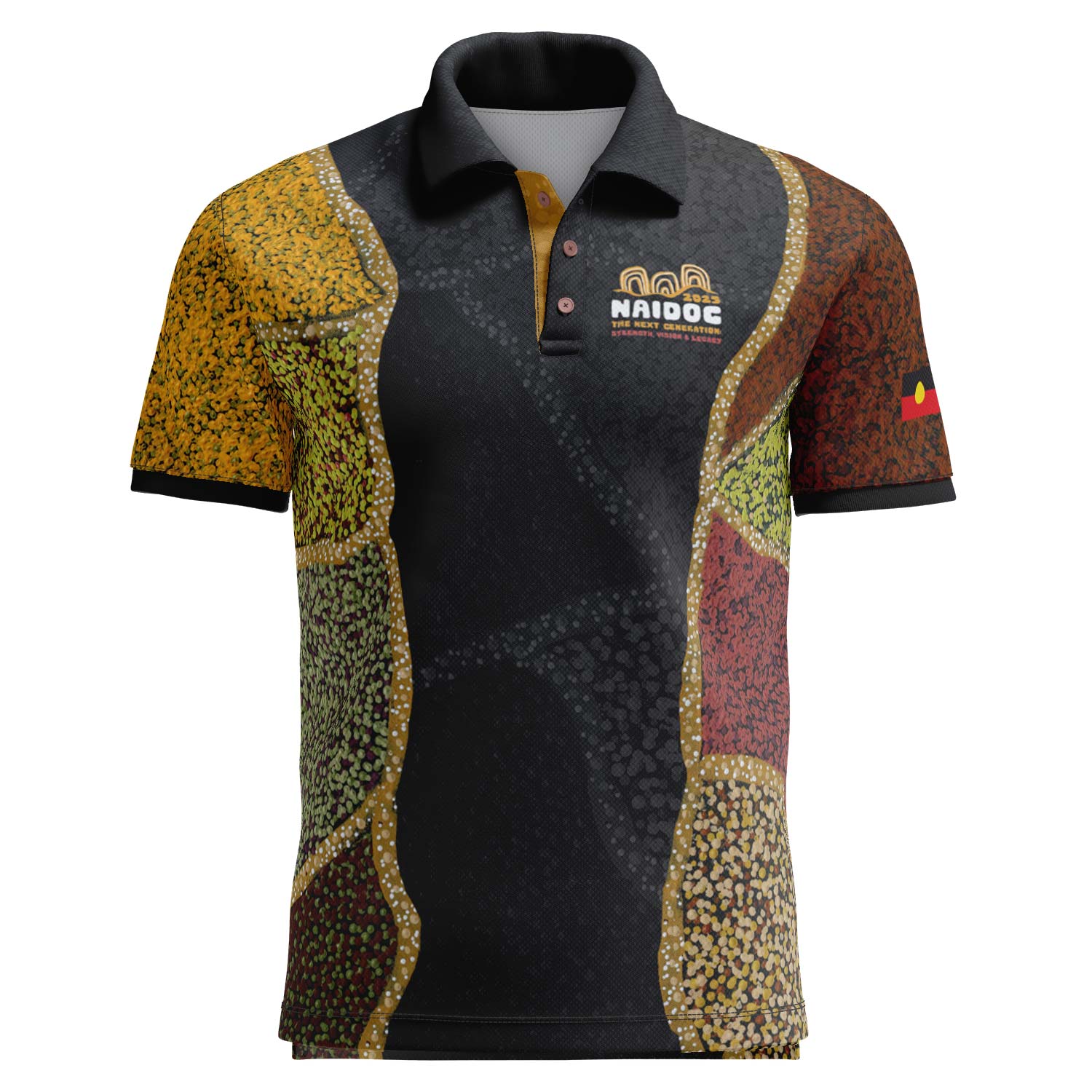
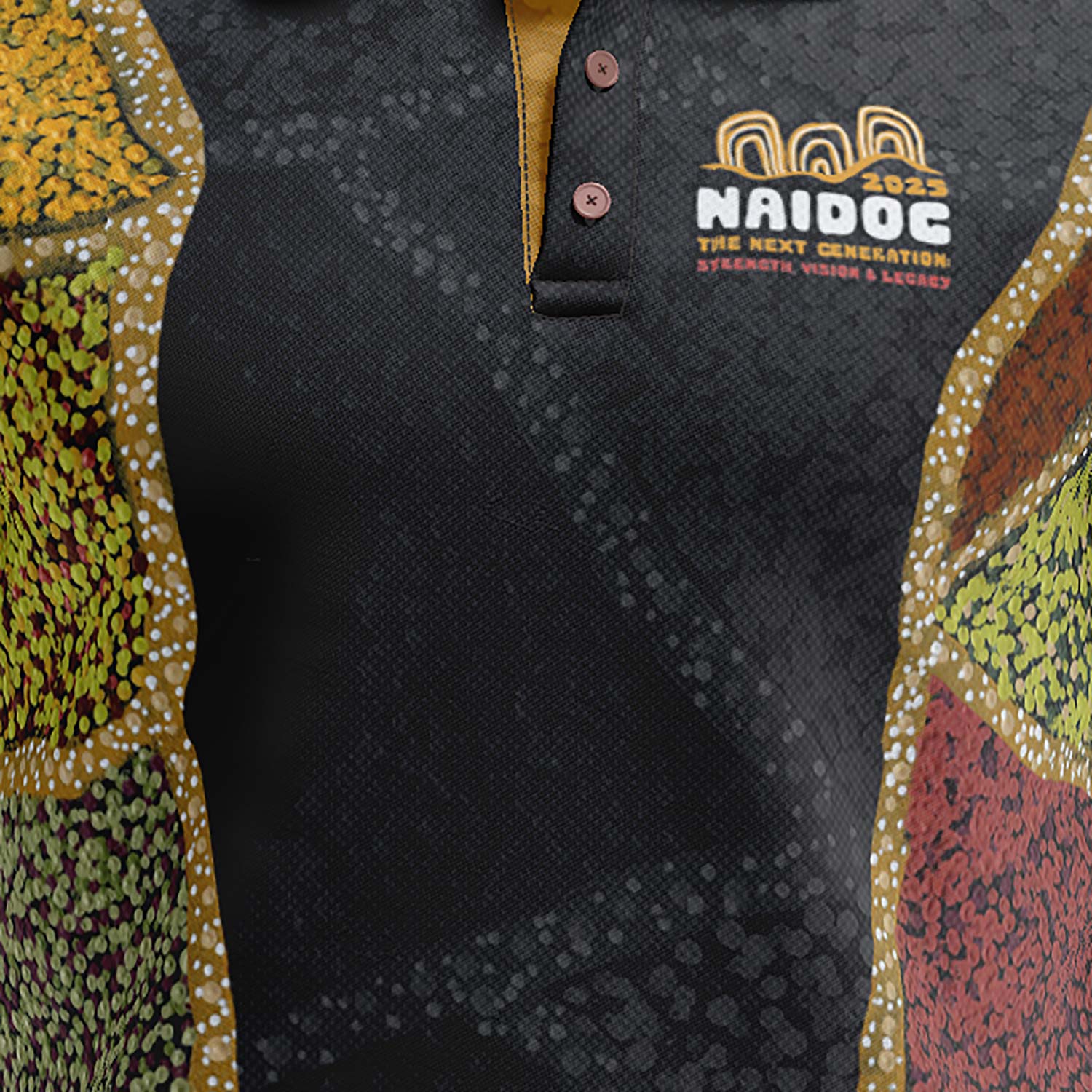
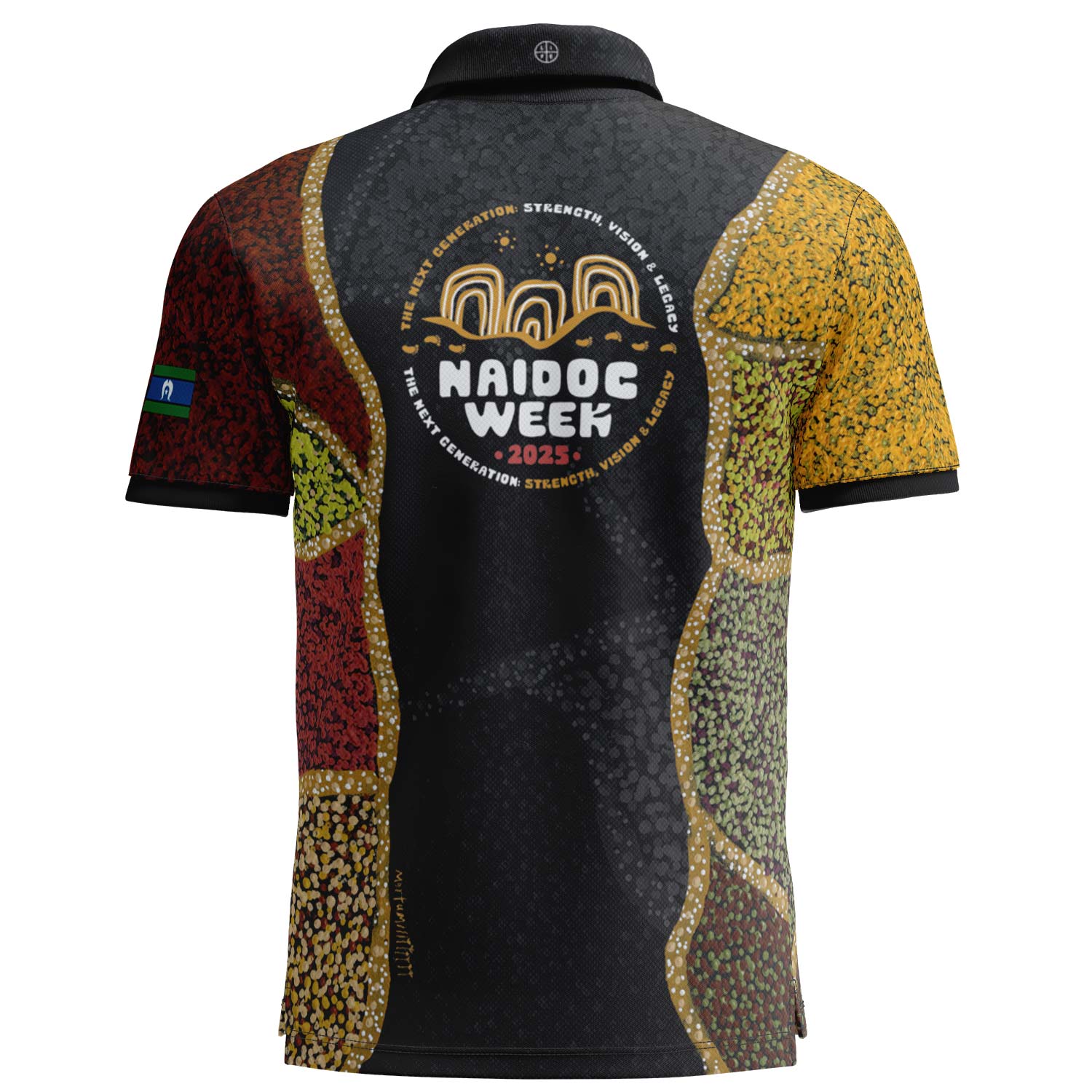
SALE - Polo, Jila Jila - NAIDOC 2025
Pairs well with:
 Authentic Indigenous artwork by First Nations artist Dianne Marney.
Read further →
Authentic Indigenous artwork by First Nations artist Dianne Marney.
Read further →
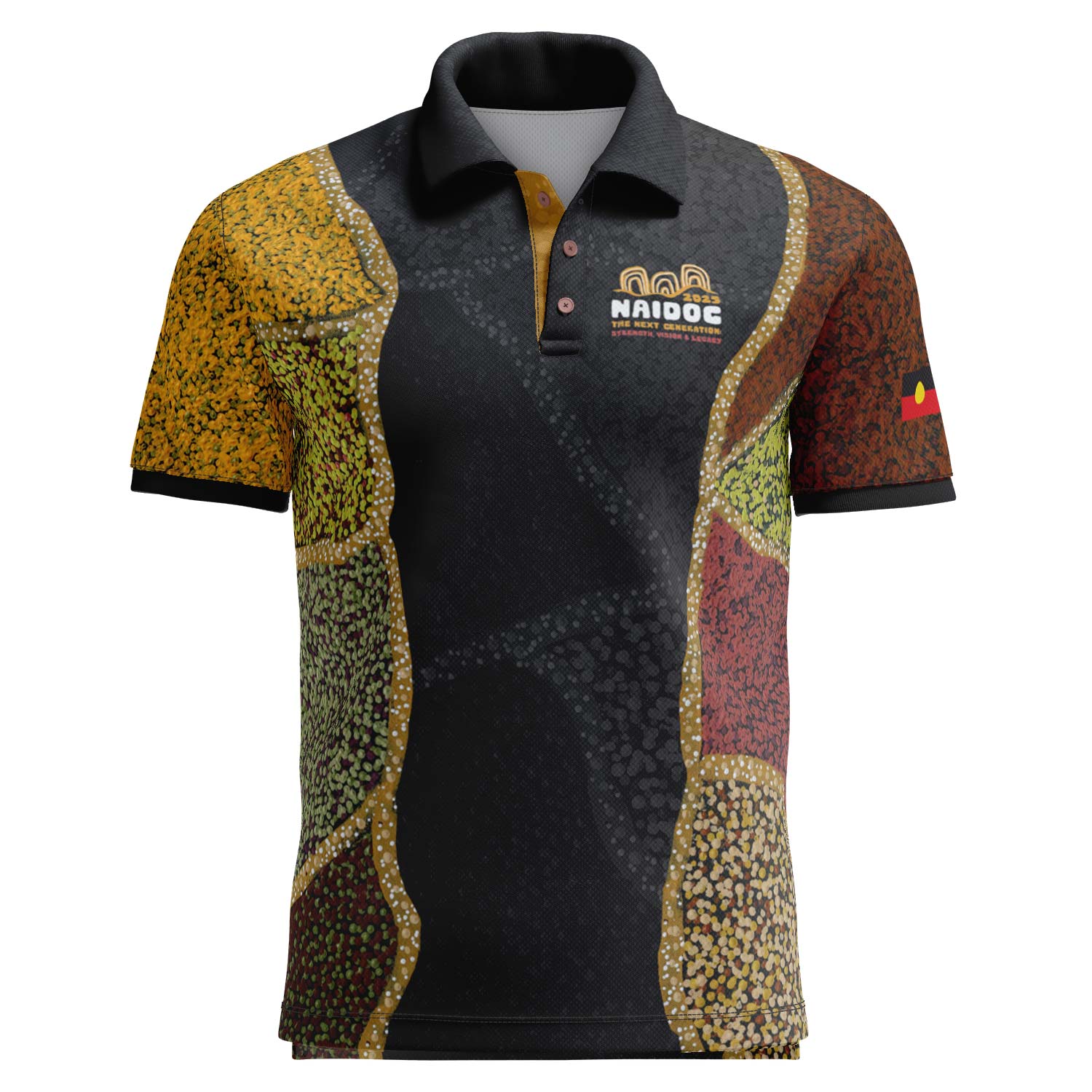
SALE - Polo, Jila Jila - NAIDOC 2025
Fast delivery
Free Australia-wide shipping on stock items over $200. Orders ship within 1-2 business days, usually the same day! More →
Easy Returns
Doesn't fit? Send it back within a fortnight for free* for store credits. T&C apply. More →
You Matter!
With every online purchase you make on our site,
the artists get paid too. More →
Features
Specifications
Fabric & Care
Thickness
Softness
Breathability
For best care, machine wash gently in cold water, using a mild detergent, and avoid using bleach or fabric softeners.
Line dry out of direct sunlight, refrain from tumble drying to prevent shrinkage or fabric deterioration. If necessary, use a cool iron on the reverse side of the fabric to avoid damaging any prints or embellishments.
Avoid contact with rough surfaces or abrasive materials, as this may cause pilling or snags in the fabric. For long-term care, store the garment in a dry place and avoid prolonged exposure to direct heat or moisture.
Sustainability 🍃
The Artwork
""
Dianne Marney
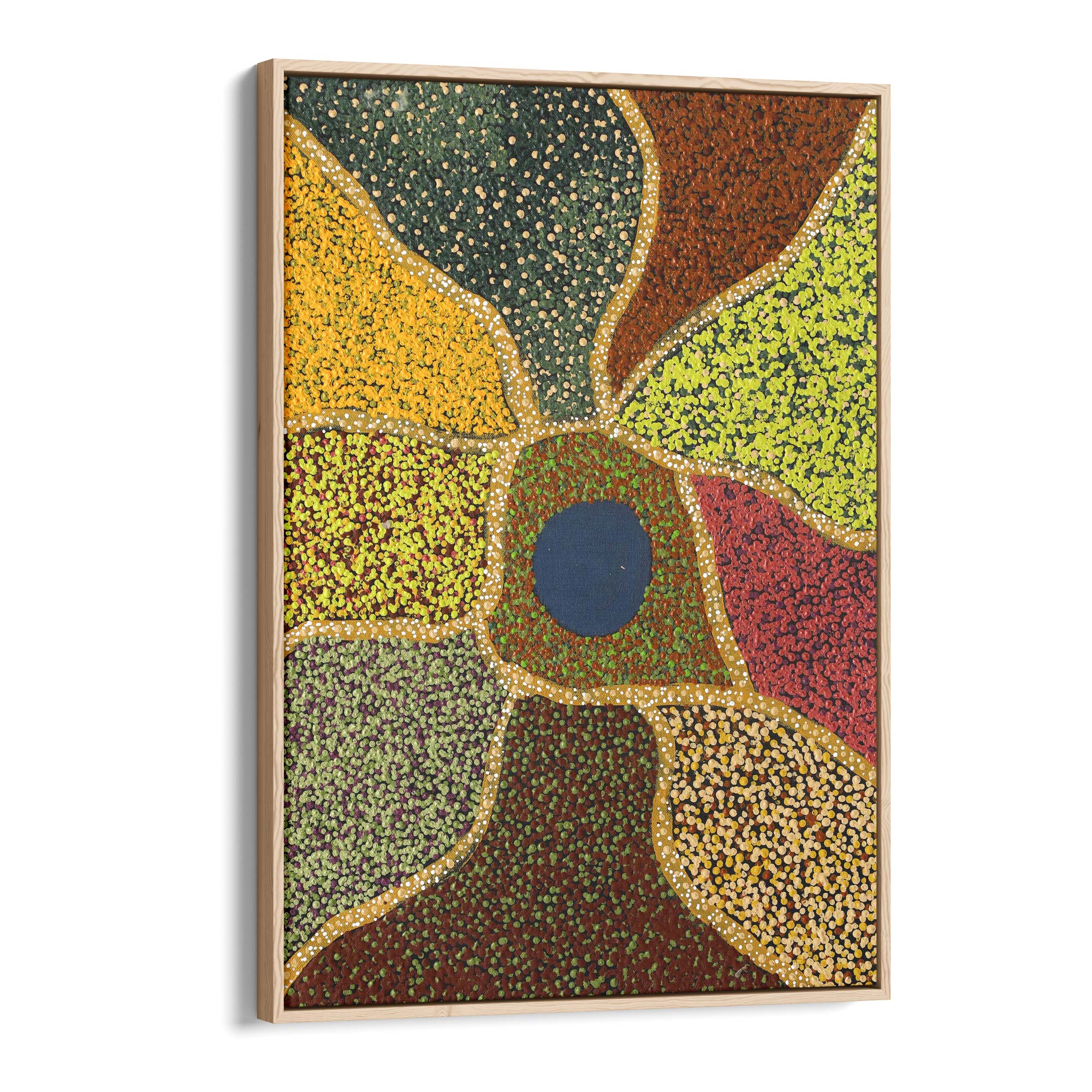
Need help? Connect by chat, email, phone and more. We're here for you Monday to Friday during business hours. If we're tied up, we'll get back to you as soon as we can.
-
Customer Support
Our team would love to hear from you! Start an online chat to connect with us , we are available Monday to Friday during business hours. Or head over to our contact page and drop us a message.
-
Ally-Friendly Apparel
We create apparel with a meaning, encouraging everyone to wear their values. Start meaningful conversations today with our ally-friendly pieces!
-
Customisation
Order a minimum of ten units, and we’ll customise any item for you without any additional charges. Ready to get started? Contact us for more information!
-
Shipping Info
Free shipping on stock items over $200 Australia-wide. We ship your order within 1-2 business days but most of the time, it goes out the same day!
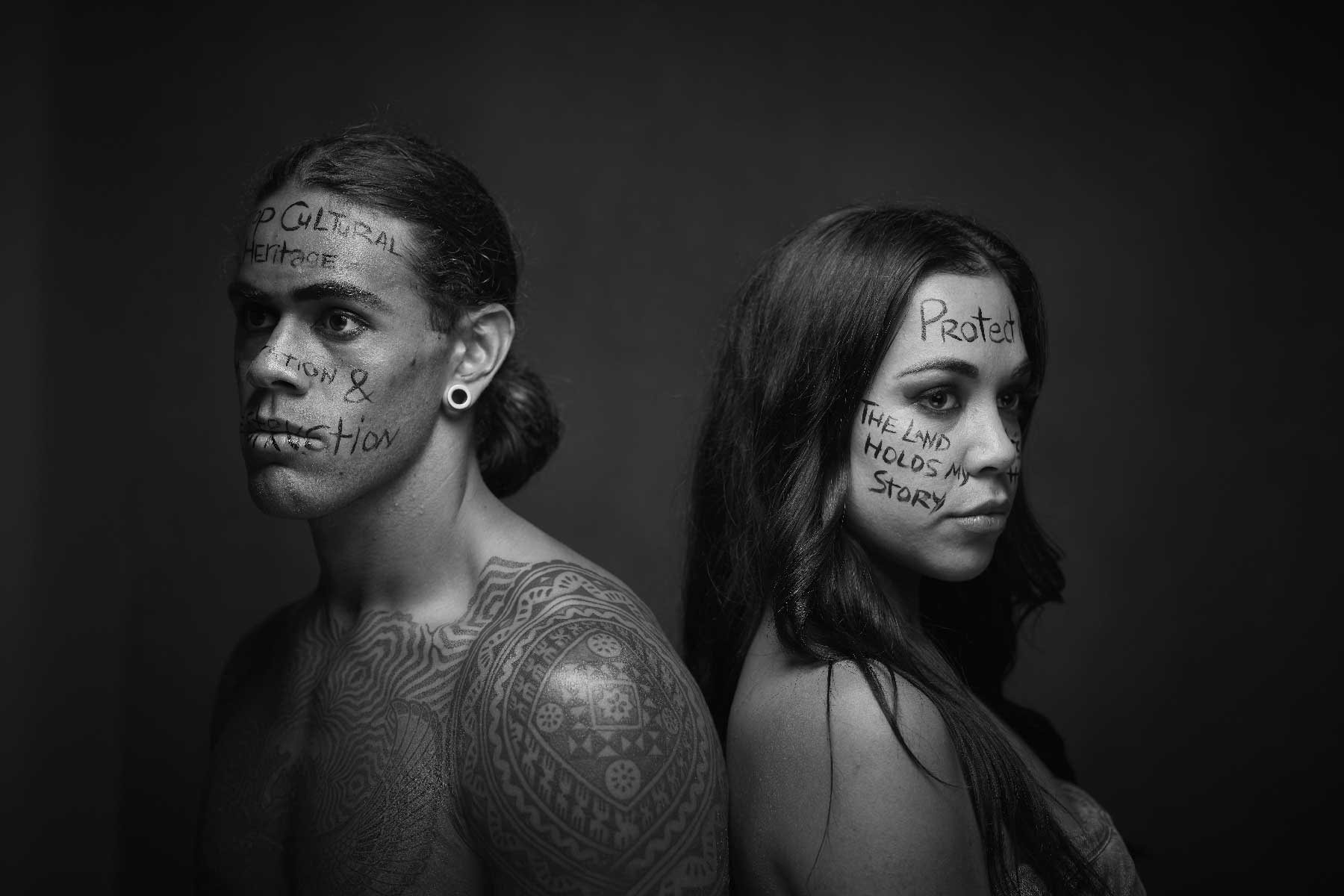
Let’s create change together!
Subscribe for updates, community events, member offers and new product drops.
